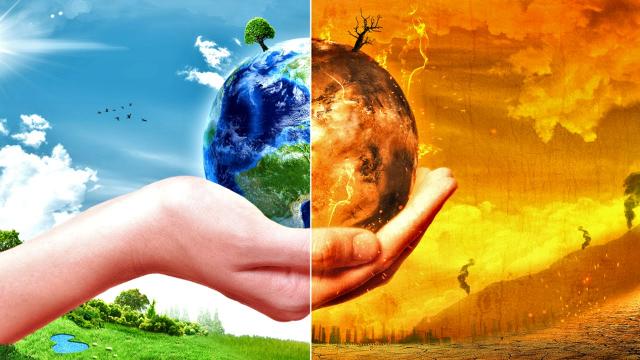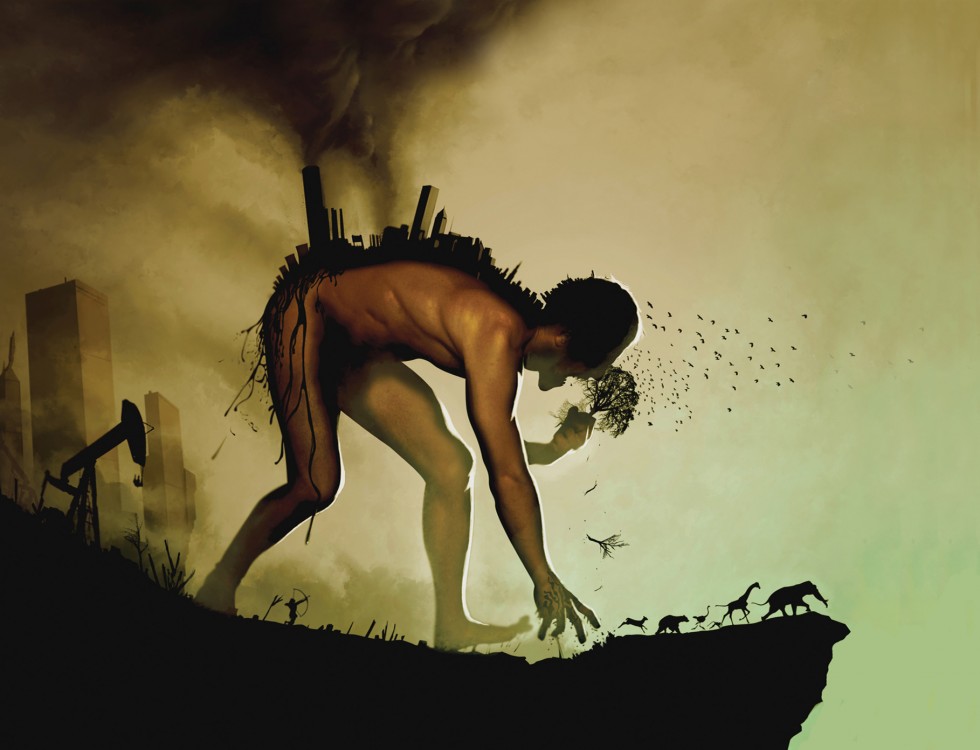
A former regulator of the Bank of England, Paul Fisher, recently admitted that climate change could trigger the next financial crisis. The forecast is unsurprising. A few years ago, the European Greens described how dependent the financial system is on the carbon bubble, as reported here by Occupy.com. But the fact that Fisher draws the link between ecological and financial crisis is a radical admission.
As a professional body, financial regulators seem more like administrators, even “banking servants,” due to their joint failure to spot systemic problems like the sub-prime mortgage fiasco, LIBOR rate rigging or Panama Papers-sized tax evasion. The revolving door explains regulators' lack of attention to chronic problems plaguing the financial sector. Another factor, however, is that regulation is fundamentally a political decision – and political will for real oversight tends to be in short supply when bankers bankroll the politicians. On an ideological level, the dogma that unregulated, free-market capitalism performs best has been strong for decades, although reality repeatedly disproves this.
Admitting climate change could cause the next financial crash breaks another key tenet of capitalism: it contradicts the notion that the economy can grow forever in a world of finite resources. Fisher’s comments sound a bit like a 17th century member of the European establishment agreeing with Galileo that the earth is, in fact, round. Like then, we need a paradigm shift today. We need to stop thinking that politics revolves around the pursuit of profits.
Explored below are seven ways climate change could cause the next financial crash. Part II in this series investigates ways we can decouple our societies, and economic activity, from the excesses of the financial system.
1. Severe Weather Events
Every year the world sees record breaking storms, heat waves and other severe weather events. These have massive human costs and economic effects: in 2014, for example, the Center for American Progress estimated $19 billion in U.S. damage that year from extreme weather.
Last year, 1 million people were hit by unprecedented flooding in Myanmar, and earlier this year India suffered a record-breaking heat wave. It's only a matter of time before weather events like these cause a shock in prices and spark national or even international crises.
2. Lawsuits Against Big Oil
A global groundswell of legal actions are developing against Big Oil and other carbon intense industries. The Philippines is suing the 45 most polluting companies for their responsibility in causing climate change. The case specifically relate to Typhoon Haiyan and the death and economic destruction it caused. Parallels with these cases, however, can be made with those that formerly challenged Big Tobacco: once litigation was successful, tobacco share prices plummeted.
Successful litigation against Big Oil would be fantastic news for the world – but bad news for the financial system. Everything from banks to pensions, public services to hedge funds, are heavily reliant on oil investments and assets. Breaking this connection through divestment is one of the solutions explored in Part II.
3. Climate Regulations
As even the former Bank of England regulator Paul Fisher points out, the necessary measures to limit climate change, such as a global carbon tax, could also force carbon-intense investments to plummet.
4. The Dirty Energy Bubble
Climate regulations will likely focus on keeping the dirtiest carbon in the ground. This means the relatively new markets in tar sands, fracking and other extreme energy could collapse, again with likely knock-on effects for people and organizations with money tied into these schemes. The process has already started with coal: due to its severe carbon output, in the years 2011-15, coal prices crashed 60%, according to a Guardian report.
The collapse could come from the banning of dirty energy practices due to mounting public opposition. Alternatively, the dirty bubble could burst if these projects continue but fail to yield the amount of energy they promised.
5. Food Crisis
The World Food Programme ranks food insecurity and malnutrition among the most devastating impacts of climate change, due to severe weather events and long-term changes in weather patterns. Like many of the consequences of climate change, the impacts of changing weather could kill millions while creating the circumstances for massive price fluctuations, economic shocks and financial crises.
A stark warning from the 1930s was the Dust Bowl in the U.S. heartland. Back then, unsustainable farming practices turned the soil to dust. This crisis amplified the ongoing financial crisis and depression caused by Wall Street’s 1928 crash. It's not unimaginable that a similar, but more extreme, agricultural crash will coincide with an economic crash.
6. Wars and Conflict
The dire impacts of climate change on agriculture also connect with war and conflict, the Syrian war being a case in point. The whole of Syrian society, let alone its economy, is being decimated by the civil war. But it's not only there. War is an integral part of the oil-dependent financial system: half of all wars since 1973 were fought for oil, including the 2003 Iraq invasion, which led to the rise of ISIS and ties back directly to the Syrian War. In this volatile world catalyzed by Western oil expansion, it is not unrealistic to imagine future violence and wars shocking the financial and economic system.
7. The Next Deepwater Horizon
Every decade features at least one catastrophic oil disaster – and the fallout from even one of these can rock the global economy. BP’s spill in the Gulf of Mexico cost the company alone $62 billion, although the real costs to the Gulf environment and its economy remain incalculable.
With ever more risky ventures in the pipeline, it seems naïve to think the next significant accident could not be even more expensive. Proceeding against strong opposition is Arctic drilling, one of the new, extremely risky ventures where clean-up costs would be magnified and a spill could ruin one of Earth's last unspoiled, fragile eco-systems. In recent news, Norway has awarded licenses to oil companies like the one chaired by Britain's Lord Browne, who headed BP and single-handedly pushed it into the deepwaters of the Gulf of Mexico.
Considering the imminent climate crisis, these different financial crisis triggers could also work together in a chain reaction. For anyone with perspective on what this could mean for our future economy, the question of de-linking global society from the sinking financial system is one of the pressing issues of our time. How we respond to the abundant warnings today will say a lot about how we fare tomorrow.
3 WAYS TO SHOW YOUR SUPPORT
- Log in to post comments


















Comments
ClarkAlan replied on
new knowledge
It is a new knowledge for me that economic system and climate change are dependent.
Everyone must take this topic seriously because our climate gets changing daily which fill cause financial crash in the whole world. Thanks for your information. I will try to investigate more about this topic and will post an essay on http://essayservices.org.
DH Fabian replied on
Urgency
We started to grasp the urgent need to end our dependency on oil -- not just imported oil, but on oil itself -- back during the Arab Oil Embargo of the 1970s. As soon as the embargo was lifted, so did the sense of urgency.
DH Fabian replied on
We drive
In America, people are willing enough to get in their cars to drive to climate change rallies... We all want to save the world, but not at the price of inconvenience.